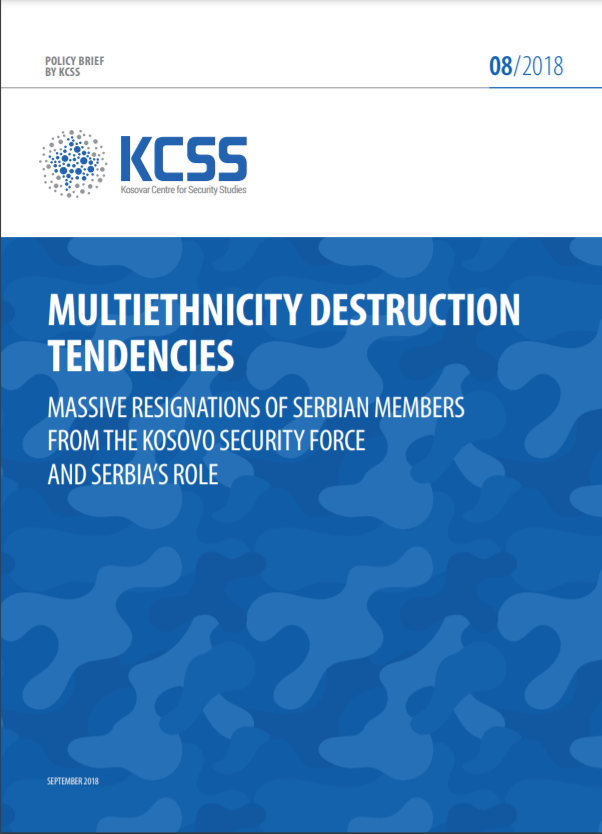18/09/2018

Kosovar Centre for Security Studies (KCSS)
Kosovar Centre for Security Studies (KCSS)
Shpat Balaj & Taulant Boshnjaku
The Kosovo Security Force (KSF) has become a topic of public debates due to ongoing efforts to upgrade its mandate. Confusion has spread among the public as it remains unclear whether those debates were just political calculations or whether the Kosovo institutions, in cooperation with international partners, are indeed taking concrete steps towards transforming the country. Controversial statements and interpretations of the matter by local and international stakeholders and the diminished debate for a short period of time have all contributed to the complexity of the situation.
On the other hand, the Serb community of Kosovo is drenched in confusion more than anyone else is. Finding themselves between two opposing stands, the Serb community in Kosovo continues to face uncertainty. Being under external pressure from Serbia and dependent on their representatives in the Kosovo Parliament, the Serbian List, whose activity is conducted by Belgrade, the Serb community integrated in Kosovo institutions is gradually being forced to take steps back in their career and position in Kosovar society.
Lack of the Serbian community’s trust towards the KSF, their lack of support for the upgrade of KSF mandate as well as the ongoing threats and direct assaults against the Serb KSF members have compelled over 60 members of the community to resign from the KSF in 2018. This wave of resignations has caused a wide debate in both Kosovo and Serbia, having negative implications and jeopardizing the dialogue on normalization of relations between the two countries. Assaults and threats against the KSF Serbian members, supported by the Serbian government, indicate deficiency of will of the latter to normalize its relations with Kosovo. These operations were condemned by Kosovo institutions; however, the failure to prevent the phenomenon has indicated the failure to extend their authority among the Serbian-majority municipalities in Kosovo.
This paper aims at analysing and summarising the sequence of events that have led to the resignations of KSF Serb members. It presents actions taken by KSF to ensure sustainable integration of the Serbian community in this institution and its future objectives in this regard. In addition, the paper offers several recommendations which would ensure sustainability in the process of integrating the Serbian community in the KSF, for the addressing of which a wider inclusion of various stakeholders has been envisaged.